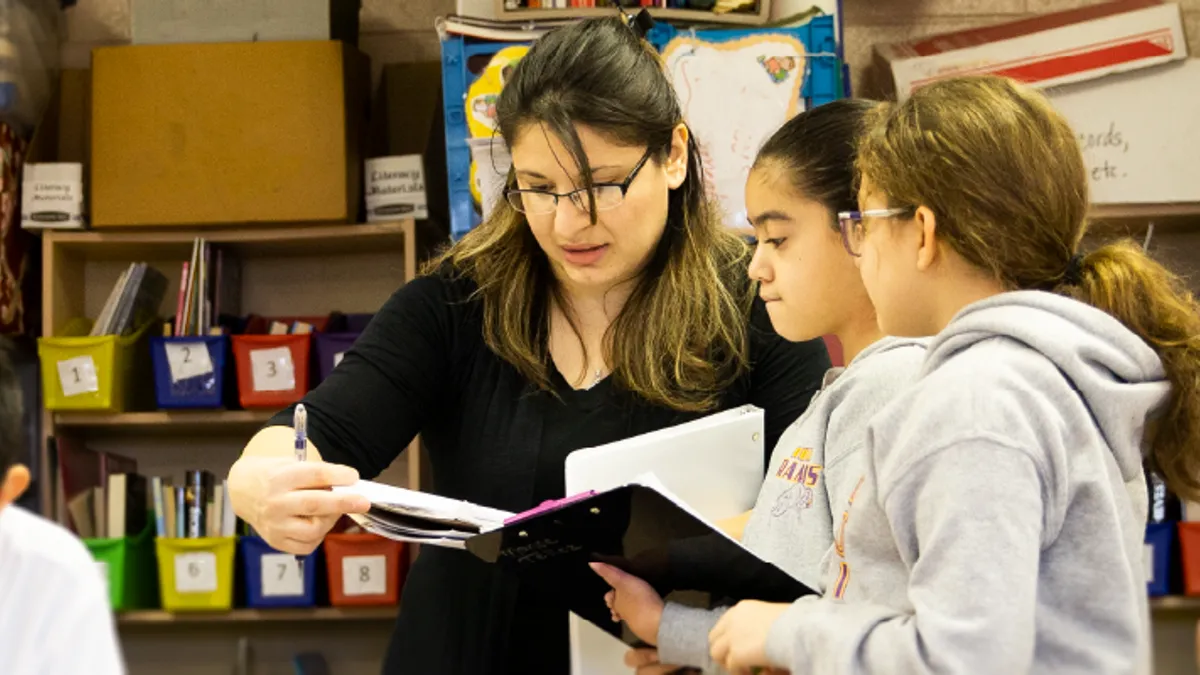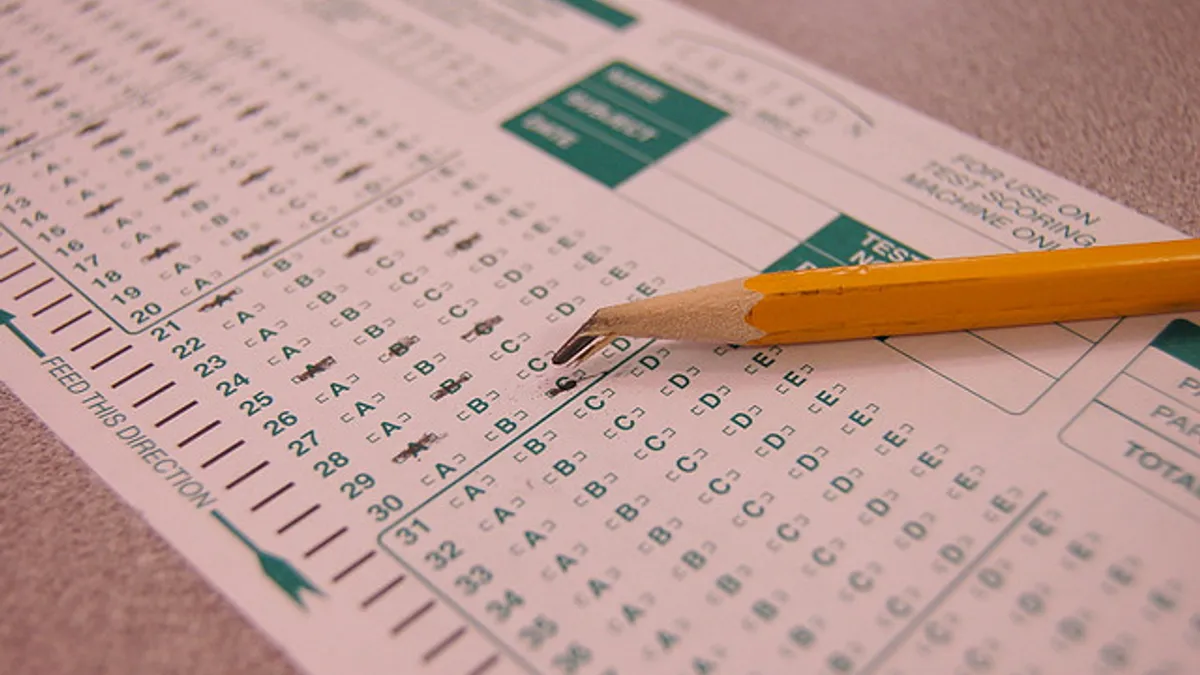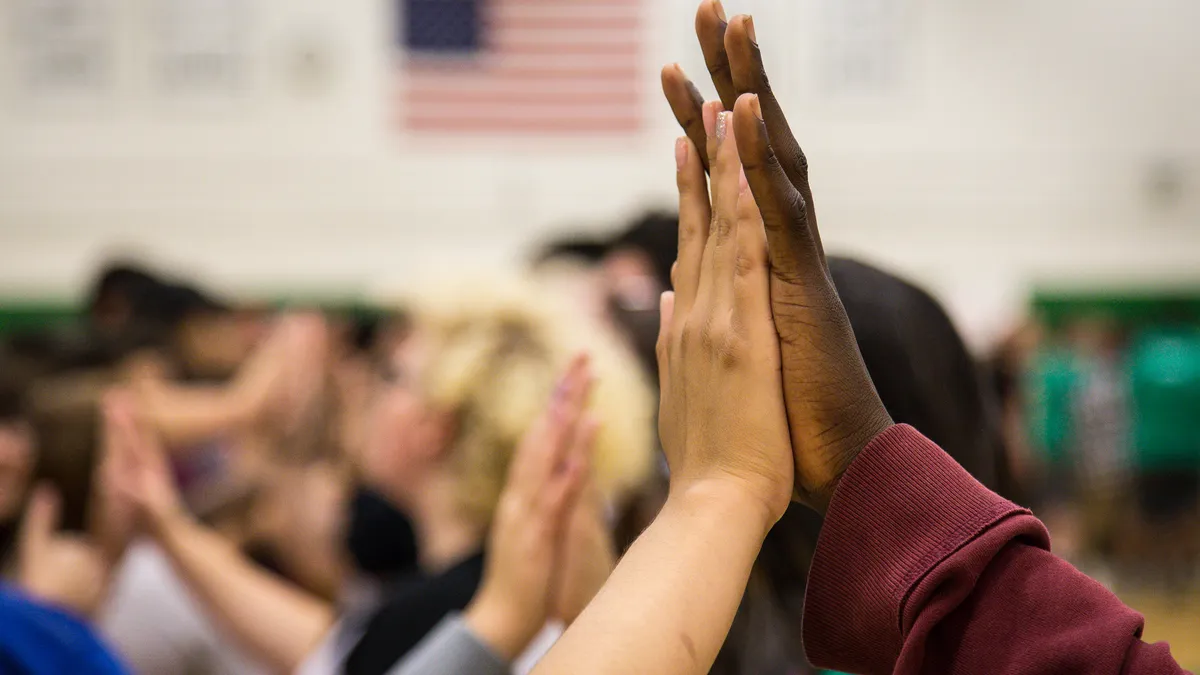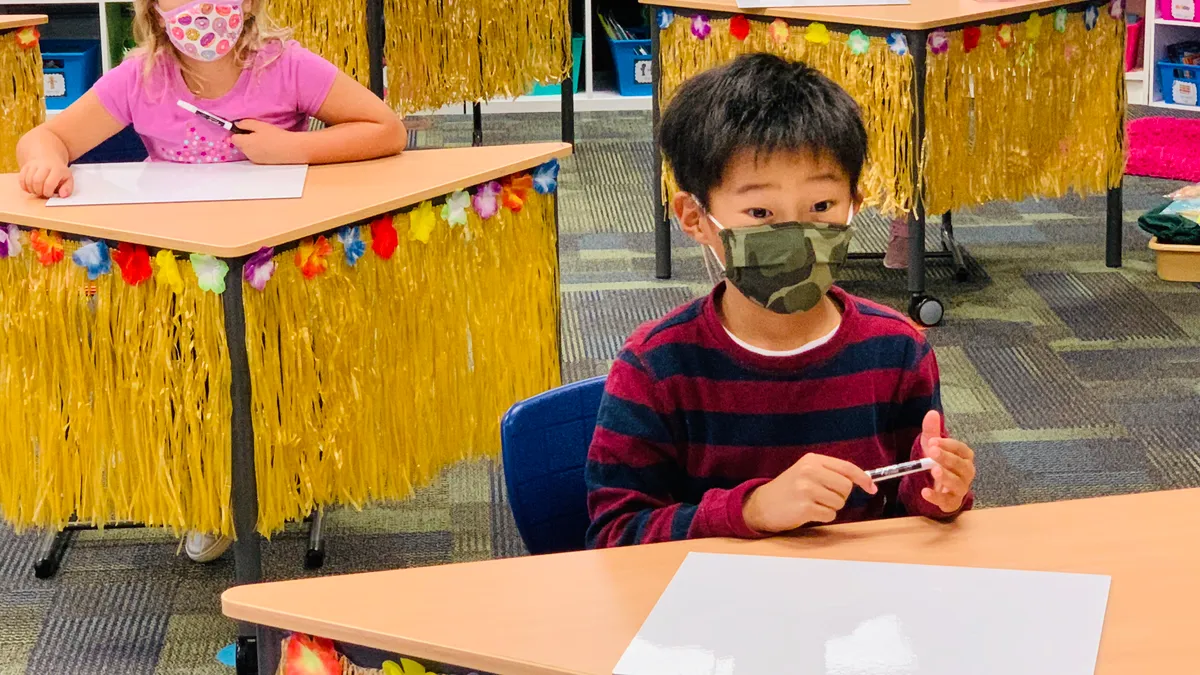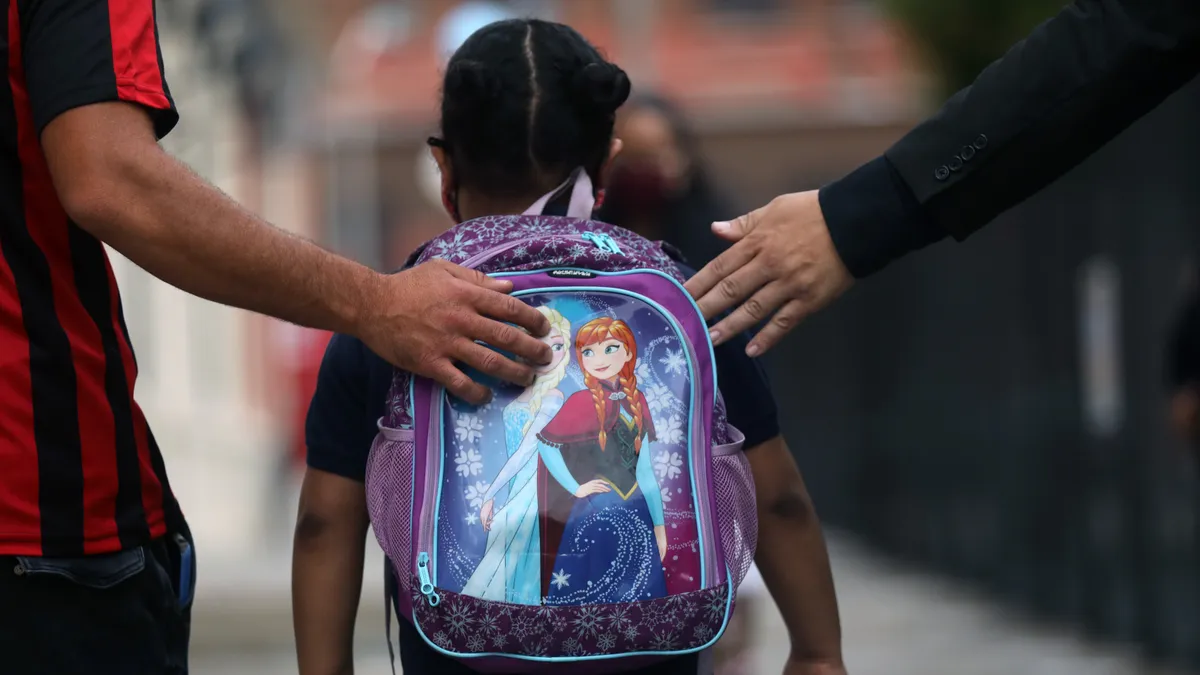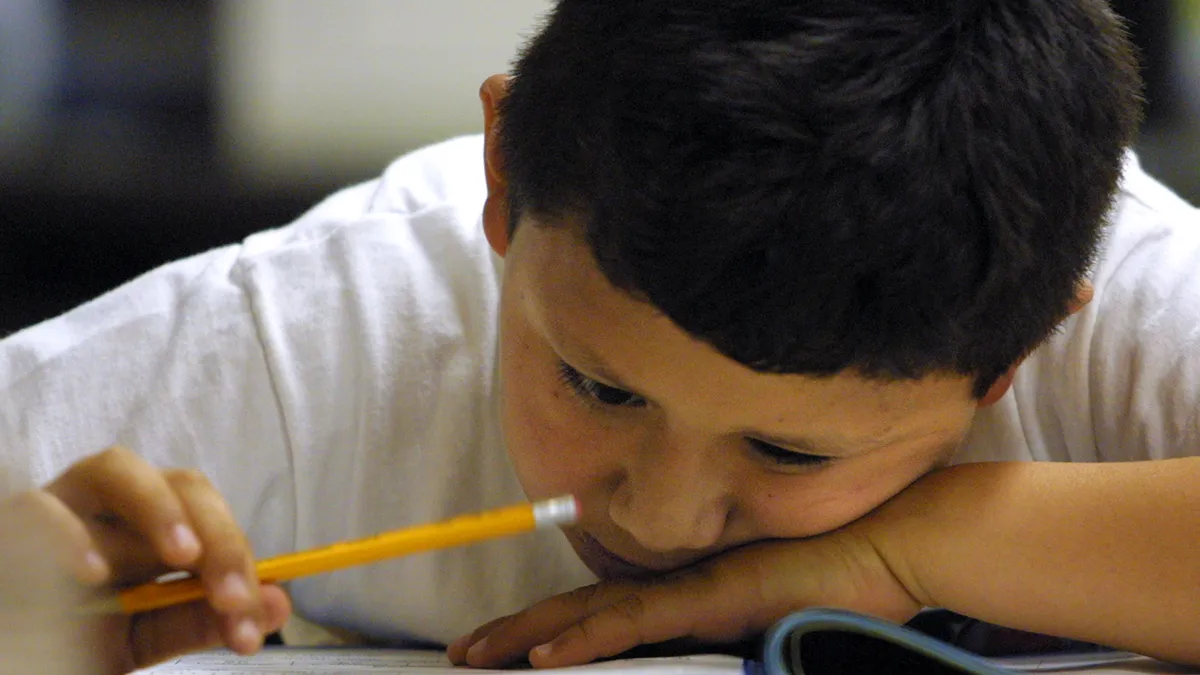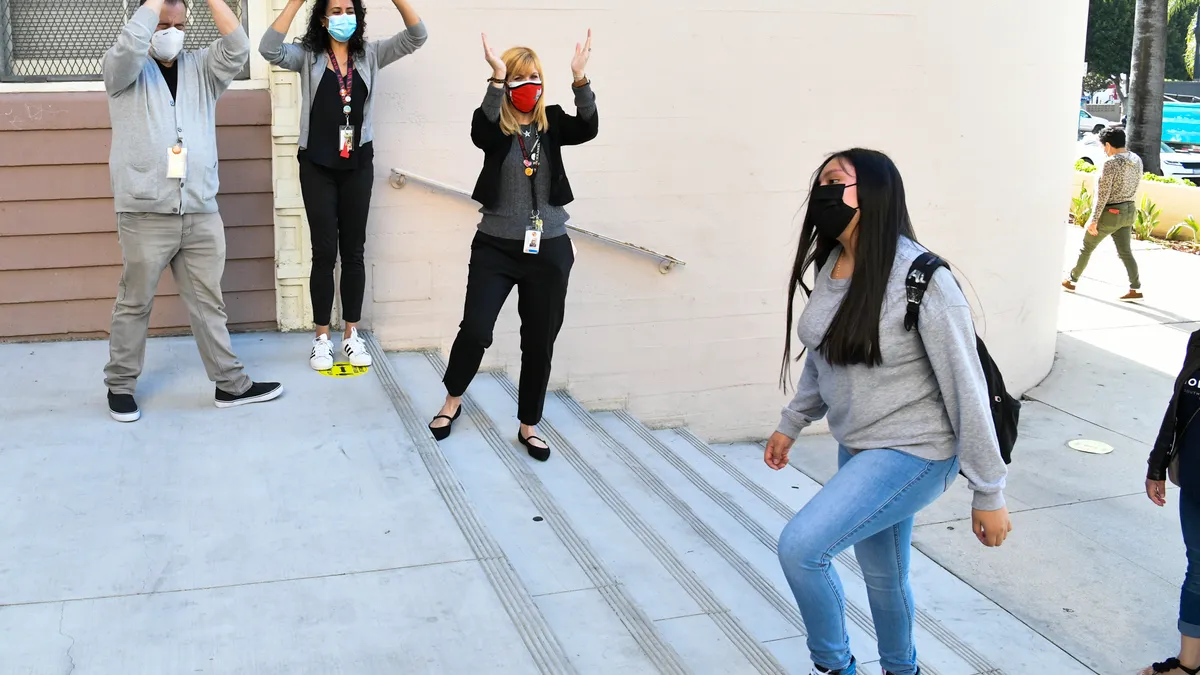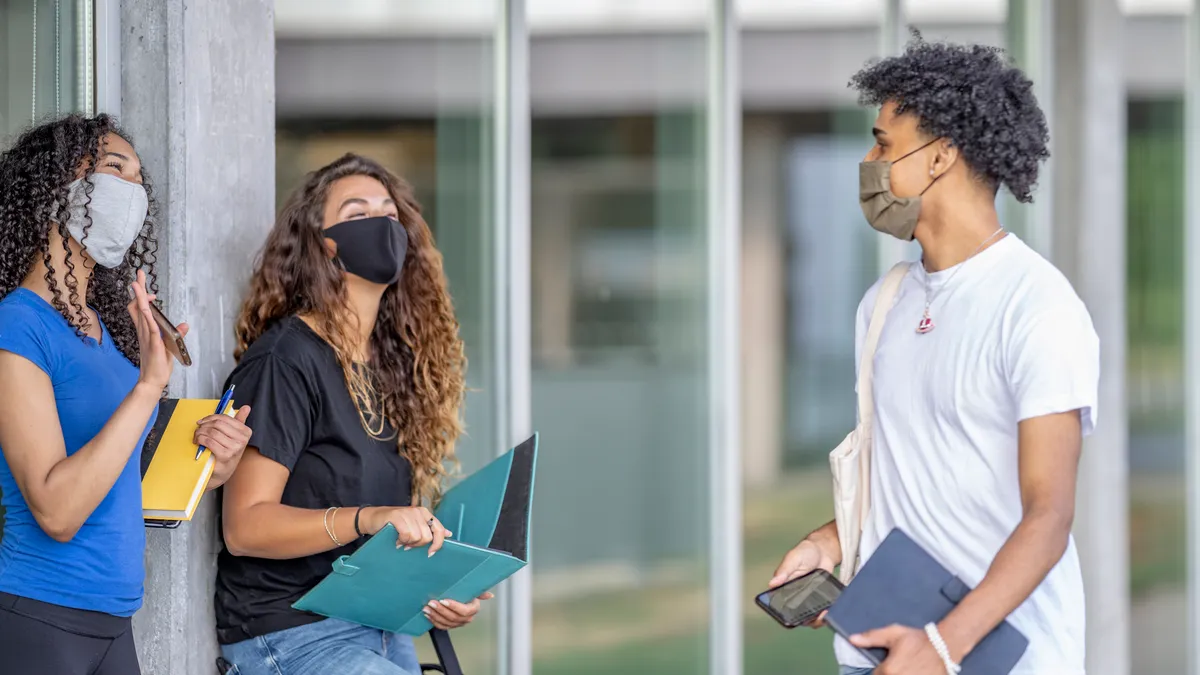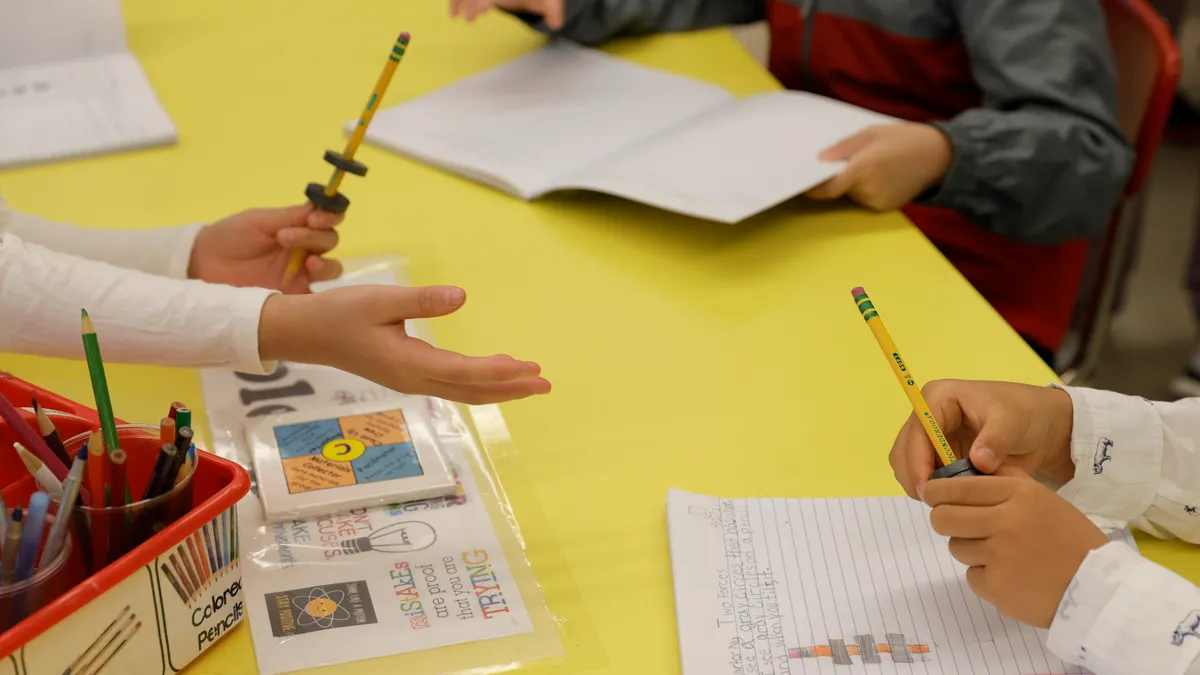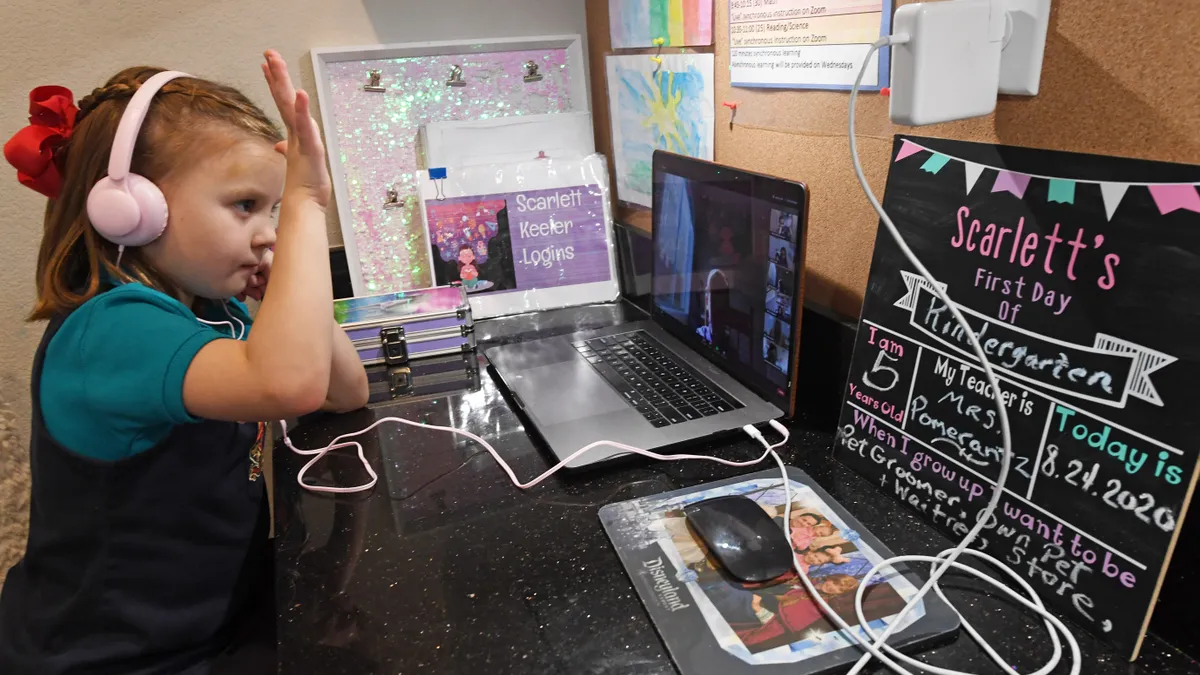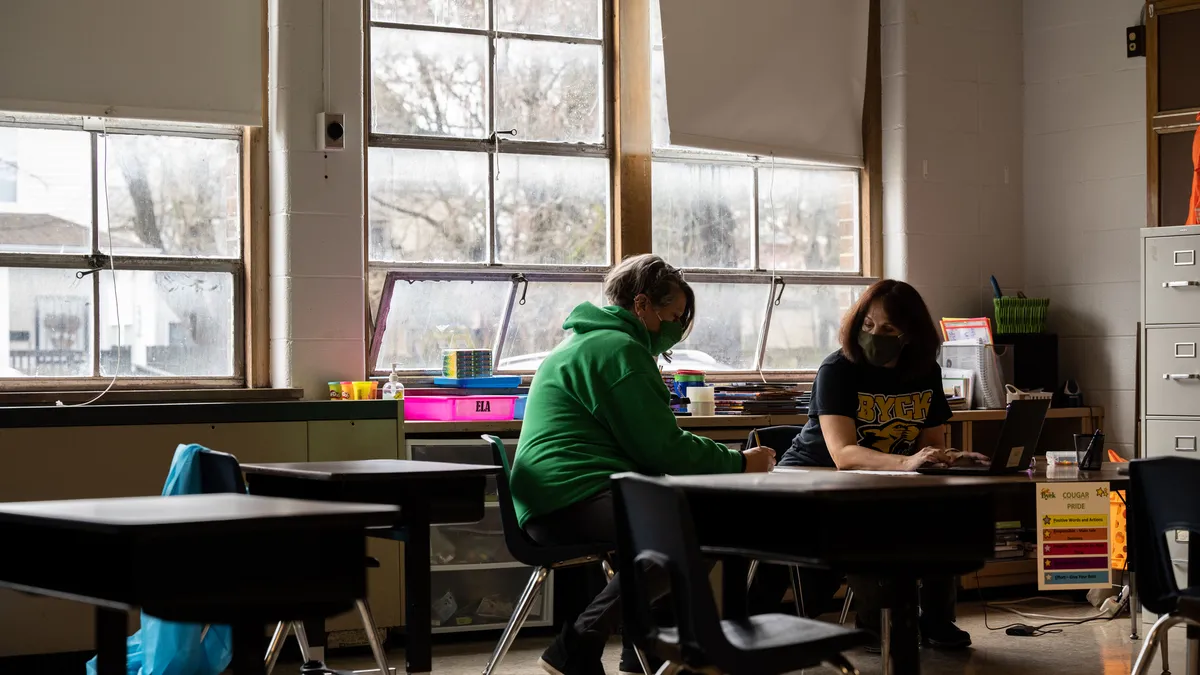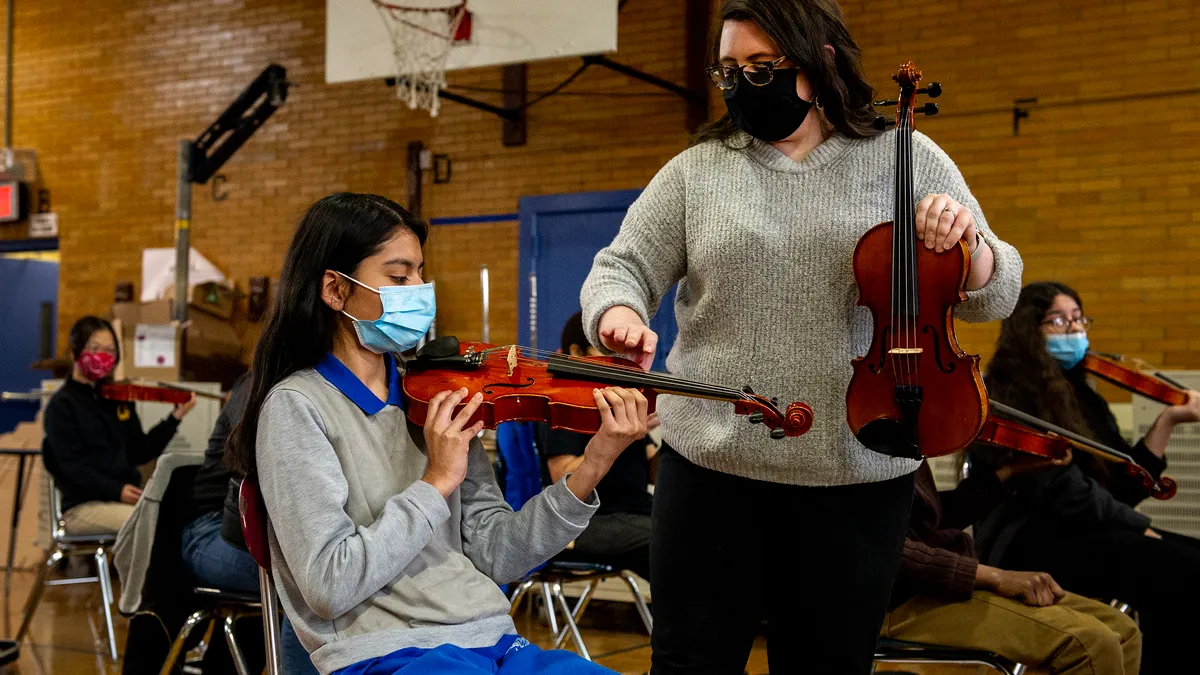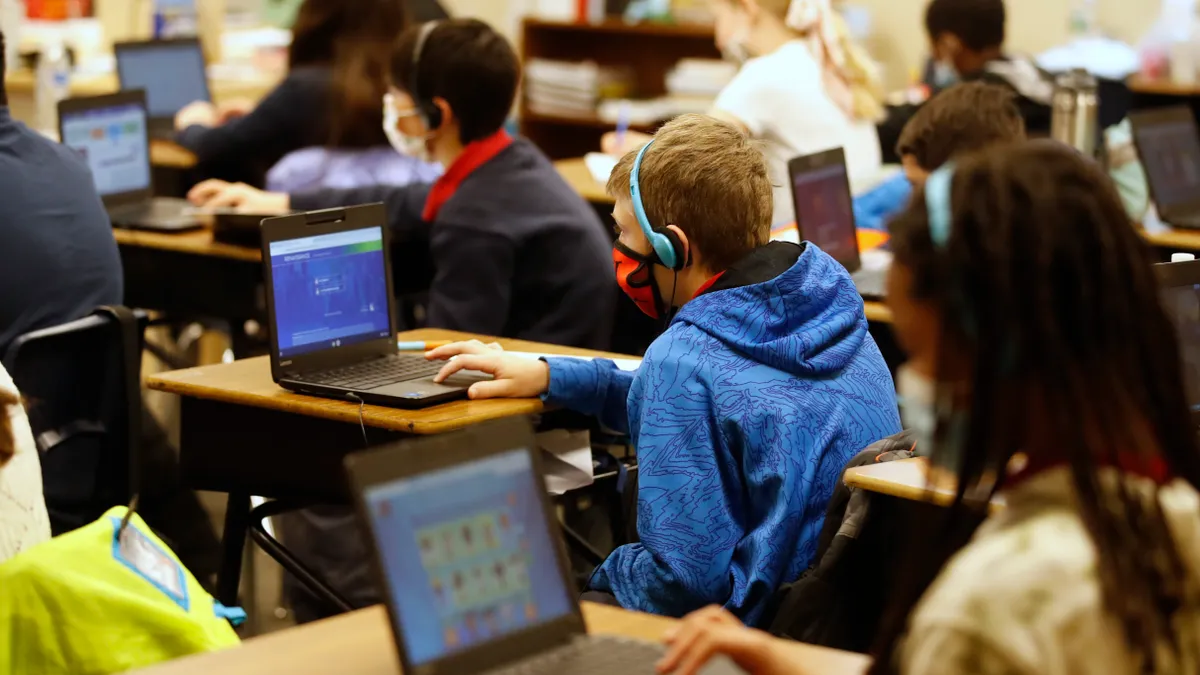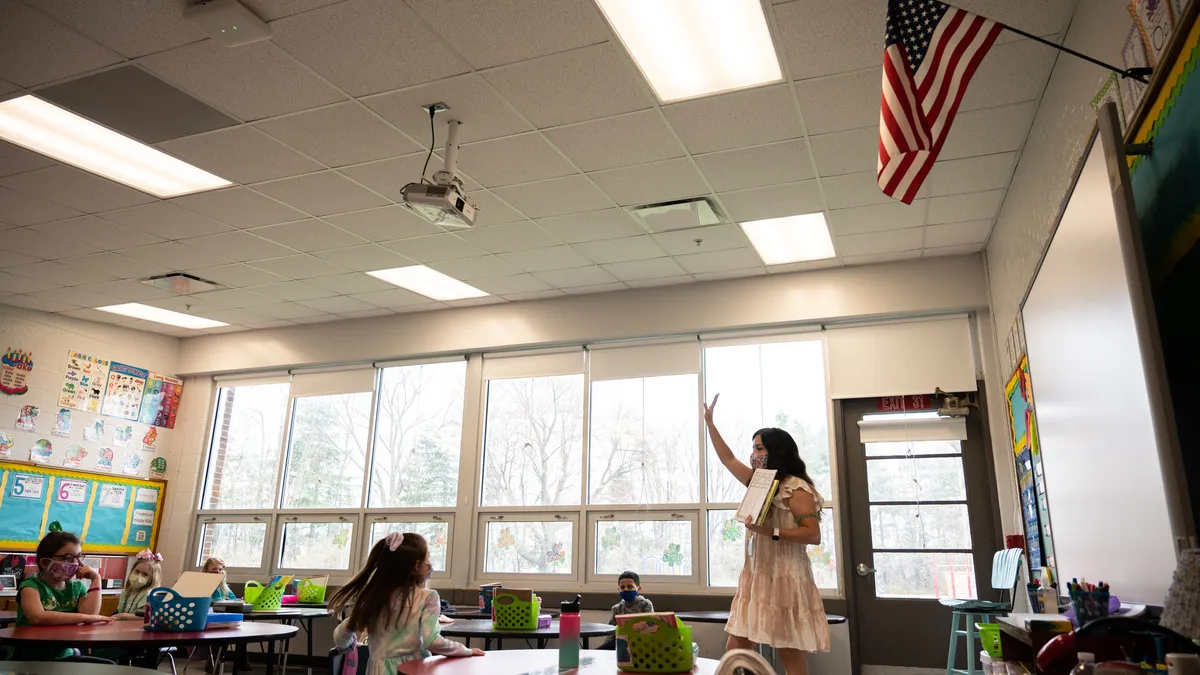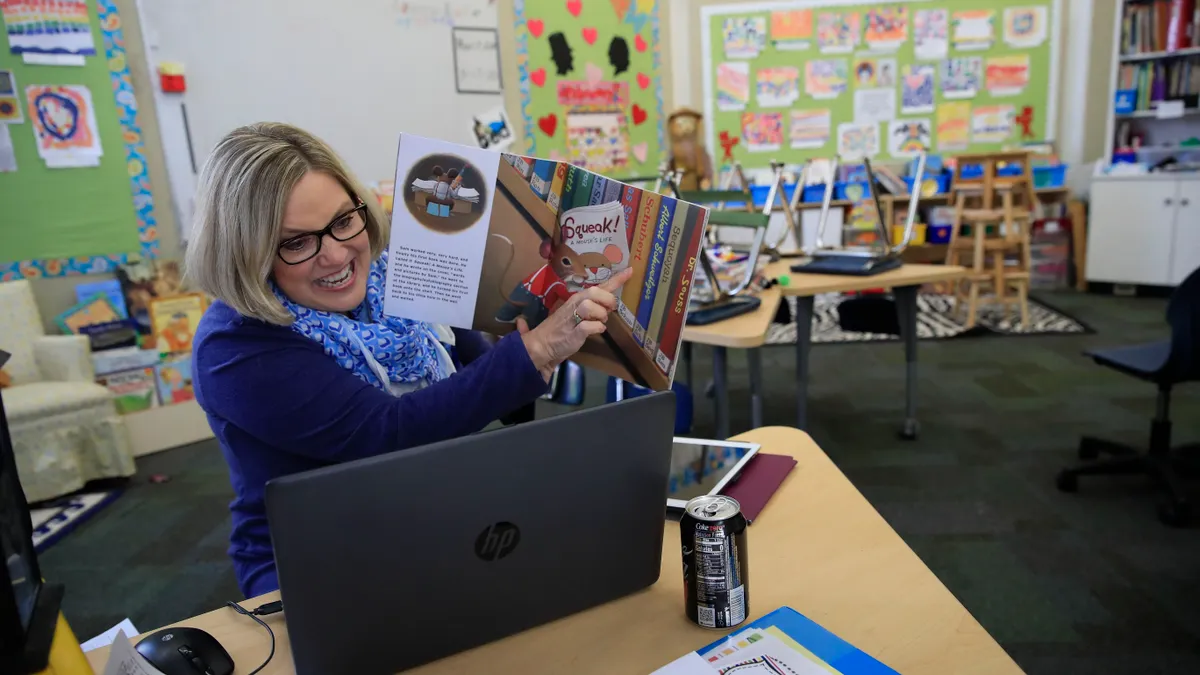Curriculum: Page 41
-
Strengthen student-teacher relationships to boost achievement
Respect, trust and "empathic listening" can have a positive effect on academic outcomes, student well-being and confidence.
By Lauren Barack • Oct. 20, 2021 -
NAEP: Trends assessment data shows lowest performers faring worse in math and reading
A widening divide between the lowest and highest performers is a systemic problem that predates the pandemic, said NCES Commissioner Peggy Carr.
By Naaz Modan • Oct. 14, 2021 -
Trendline
Social-Emotional Learning
Our latest K-12 Dive Trendline takes a closer look at how educators are addressing social-emotional learning amid pushback from policymakers and ongoing demand from employers.
By K-12 Dive staff -
California becomes first state to mandate ethnic studies course for graduation
Other states have made progress toward approving curricula in recent years. Some have required the subject be offered as an optional course.
By Shawna De La Rosa • Oct. 13, 2021 -
Choice, guidelines key to helping students hone public speaking skills
Helping students begin strengthening these skills in the elementary grades can increase their confidence as they advance into college or career.
By Lauren Barack • Oct. 13, 2021 -
School leaders should consider unique needs when choosing SEL programming
Analyzing data and getting input from school community stakeholders is essential to identify which model is the best fit for students.
By Shawna De La Rosa • Oct. 11, 2021 -
3 best-practice approaches for assessing students with disabilities
Results from informal and formal student assessments can help determine effective instructional strategies and individualized supports.
By Kara Arundel • Oct. 11, 2021 -
Don't overlook the power of estimation in boosting students' math skills
Helping students learn to establish parameters for where a solution should fall can boost their confidence in tackling math more broadly.
By Lauren Barack • Oct. 6, 2021 -
3 ways expanding early college curriculum benefits high schoolers
Programming can facilitate "grow your own" teacher initiatives, entry to skilled trades, and higher grad rates, benefiting students and districts alike.
By Lauren Barack • Oct. 6, 2021 -
How 2 middle schools are prioritizing SEL for teenage students
Educators in these Minnesota and Tennessee schools have integrated SEL curriculum throughout the day — with exercises included for staff, as well.
By Kara Arundel • Oct. 5, 2021 -
How K-12 schools can weave alumni back into curriculum
From student newspapers to history projects and beyond, schools can engage former students to help build learning pathways.
By Lauren Barack • Sept. 29, 2021 -
What does it mean to make schoolwork more authentic?
Making room for collaboration, multiple perspectives and real-life relevance can help students build personal connections and boost confidence.
By Lauren Barack • Sept. 29, 2021 -
Report: Geography, socioeconomics created significant variation in pandemic learning plans
Analysis of spring 2020 plans from Kansas, Nebraska, North Dakota and Wyoming finds connectivity, rurality and poverty levels were key factors.
By Shawna De La Rosa • Sept. 29, 2021 -
4 ways to add joy to math after virtual learning
Helping students shake off negative math identities and discover how math concepts are related are some of the strategies being promoted.
By Kara Arundel • Sept. 23, 2021 -
Opinion
How a Texas school managed classroom chaos
An assistant principal shares how school-home communications were all the more crucial as students were ping-ponged between learning models.
By Sarah Norman • Sept. 23, 2021 -
How can schools improve teaching about slavery and historical racism?
Responding in a forum for the journal Education Next, academics stressed the importance of providing full context and debunking long-ingrained myths.
By Shawna De La Rosa • Sept. 22, 2021 -
What educators can do to help students boost focus in returns to in-person learning
A variety of strategies and tools can help elementary students reengage and strengthen their focus when they feel overwhelmed.
By Lauren Barack • Sept. 22, 2021 -
Playing during a pandemic: How schools keep music education going
Allowable uses under ESSER funding support the continuation of music programming, including the hiring and training of music educators.
By Kara Arundel • Sept. 15, 2021 -
Mentorships can expand students' curricular engagement, motivation
Connecting students with mentorship opportunities can allow deeper exploration of interests while making subject matter more personally relevant.
By Lauren Barack • Sept. 15, 2021 -
How states are strengthening financial literacy programs
Interest continues to build for financial education as a growing number of states require courses for graduation.
By Kara Arundel • Sept. 8, 2021 -
Guiding students through study strategies can boost math confidence
One suggested approach is to have students learn the skills in the format through which they'll later be assessed.
By Lauren Barack • Sept. 8, 2021 -
Influx of school devices provides crucial opportunities for data privacy lessons
Experts suggest students be taught to clear search histories, hard drives and more before returning school-issued devices.
By Shawna De La Rosa • Sept. 8, 2021 -
Opinion
Why we're prioritizing SEL this year
Four educators write that additional supports are a necessity for students and their families this year to proactively address pandemic stress and trauma.
By Chrysantha Norwood, Shane Blandford, Scott Hangey and Mike Hoffman • Sept. 8, 2021 -
Deep Dive
3 ways educators are addressing the 20th anniversary of 9/11 in curriculum
From using a poem written by the U.S. poet laureate at the time as a springboard for discussion to engaging the community, resources are plentiful.
By Lauren Barack • Sept. 1, 2021 -
Current events bring relevance to science curriculum while boosting media literacy
Strategies include having classes look at marketing copy around sports drinks to critically analyze a message and differentiate evidence and opinion.
By Lauren Barack • Sept. 1, 2021 -
Ed Dept resource examines how schools can use ARP funds to address learning loss
The ARP Elementary and Secondary School Emergency Relief fund requires at least 20% of that money be used to address pandemic learning loss.
By Shawna De La Rosa • Sept. 1, 2021
